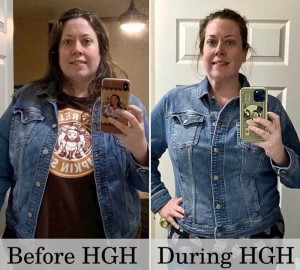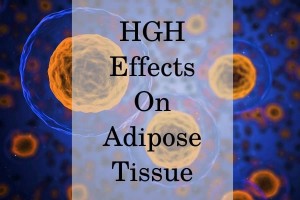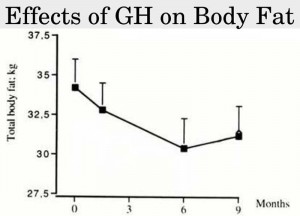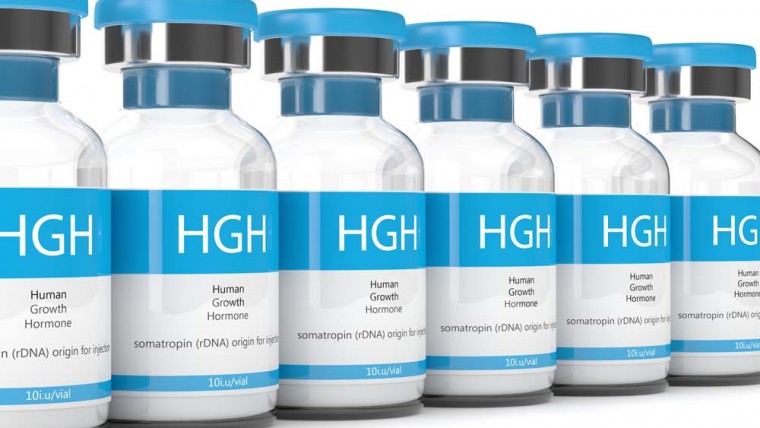In this article
The human growth hormone (HGH) is one of the key factors that regulate your metabolism. Growth hormone helps break down adipose tissue but at the same time promotes muscle strength and growth.
Unfortunately, conditions such as growth hormone deficiency (GHD) can lead to an imbalance of these processes and unfavorable changes in your body composition.
In order to manage the symptoms, you should take exogenous growth hormone in the form of HGH therapy. HGH therapy is the only FDA-approved treatment and has nothing to do with GH supplements that profess quick and easy weight loss.
Such substances are poorly studied and often turn out to be ineffective despite their claims. Moreover, they lack sufficient evidence of their safety and may lead to unexpected adverse reactions.
HGH therapy is effective in alleviating all other symptoms of GHD as well. You’ll see results from HGH such as increased energy levels, cholesterol, libido, mood, sleep, quality of life, and bone mineral density.
How HGH therapy affects body composition
HGH therapy has been studied extensively in regards to its safety and effectiveness in treating the symptoms of GHD.
Currently, it is accepted as the only effective GHD treatment. Moreover, official medical guidelines confirm it can reduce body fat while inducing anabolic effects in your muscle tissue.
The effect of HGH therapy on fat loss is usually more significant compared to the benefits for muscle gain. According to studies this fat-burning effect is depot-specific and targets mainly the adipose storage around your waist and internal organs.
The fat that accumulates there is called visceral, and patients with GHD often suffer from visceral obesity. The buildup of visceral fat increases the risk for heart disease, diabetes, and cancer.
Therefore, the fat-burning effect of HGH therapy can also help reduce the risk for metabolic conditions and improve cardiovascular health in GHD patients.
On the other hand, the effects of growth hormone on muscle tissue are indirect and mediated by insulin-like growth factor 1 (IGF-1). IGF-1 is a powerful anabolic hormone that stimulates growth in almost all tissues in your body.
Most importantly, HGH and IGF-1 protect your muscles against wasting. Without growth hormone, muscle protein loss increases by 50% during fasting compared to individuals with normal hormonal levels.
HGH therapy also improves your quality of life, regardless of the exact cause of GHD. The effects occur as soon as 3 months after starting the treatment and involve increased energy and vitality.
How can HGH help with weight gain?
Scientists report that the growth hormone stimulates fat breakdown directly by activating an enzyme called hormone-sensitive lipase (HSL).
HSL is the key to releasing fatty acids from your adipose cells which makes the latter shrink. The process is called lipolysis and it usually occurs 1-2 hours after an HGH injection.
GH also affects another enzyme called lipoprotein lipase (LPL) that regulates the uptake of fat back into your cells.
It blocks LPL activity in adipose tissues without affecting its activity in your muscles. Therefore your body can burn the fat for energy instead of storing it back into your deposits.
The exact amount of fat loss you may experience will depend on several factors, including your age and gender. One study found a 6% reduction in body fat mass amongst men and women after the first 6 months of treatment.
Scientists report that the weight loss effect was greater in men compared to women
Furthermore, a trial in men reported 9% reduced total body fat and over 18% reduced visceral fat mass for 9 months of therapy.
These results are confirmed by other studies that report an 18% reduced visceral fat mass in men and a 5% reduction in women.
Since the women in the study were postmenopausal and estrogen-deficient, the scientists suggest that the greater weight loss in men is likely due to a synergistic effect between testosterone and HGH.
Is HGH legal for fat loss?
In adults, growth hormone is medically indicated for the therapy of GHD, short-bowel syndrome, and wasting due to AIDS.
The only way to know if you are a candidate for the treatment is to consult with a medical doctor, preferably a specialist in endocrinology.
If a medical doctor has diagnosed you with any of these conditions, then a doctor can prescribe HGH therapy to manage your symptoms.
Once you have a prescription, you will be able to purchase legal treatment from a licensed pharmacy.
However, obtaining HGH therapy without a prescription is illegal and potentially dangerous. There is no guarantee that you are purchasing a safe and genuine product unless the medication is obtained from a licensed pharmacy that requires a prescription.
Keep in mind that such unregulated substances are not FDA-approved and may be diluted, expired, or contaminated with various chemicals and pathogens.
How much (and how long) to take HGH for weight loss?
It takes at least a month of HGH therapy or more until there are any noticeable changes in body composition and fat loss.
Furthermore, the researchers report that it takes 6 months to reach the maximum effects in terms of body fat loss. The visceral fat percentage may continue decreasing slightly for 9 months after the start of the therapy.
The subcutaneous fat regions are usually the first to start shrinking, especially around your belly and waist. They are affected the most due to the depot-specific effects of growth hormone.
Boosting the dosage may speed up the effects, but it’ll also increase the risk of adverse reactions. Common side-effects include water retention, headache, joint pain, edemas, and carpal tunnel syndrome.
Always consult with your doctor before making any changes to your therapy or dosage
Unfortunately, the effects of growth hormone treatment on weight loss are not permanent. The medication does not restore the function of your endocrine system so quitting GH will eventually lead to your symptoms coming back, including abdominal fat gain.
Is your weight gain caused by hormone deficiency?
GHD is only one of the possible factors that can lead to unexpected weight gain. Studies confirm that patients with this condition have significantly higher body fat percentage, body weight, and waist circumference.
Other conditions that may lead to obesity include:
- Thyroid diseases
- Congenital syndromes
- Cushing’s syndrome
- Medications
- Substance abuse
- Eating disorders
Some patients on HGH therapy may experience lower weight loss than expected. That is due to the fact that the growth hormone increases your lean body mass.
Therefore, the changes in your body weight are not going to accurately reflect the reduction in your body fat percentage.
But despite the lack of dramatic net change in your body weight, you still lose several inches from your waist and appear leaner.
Rarely, patients may even gain weight while on growth hormone, due to factors such as water retention. However, the retention is transitory, and therefore the weight gain is not permanent.
On the other hand, if you eat more calories than you burn on a daily basis and this habit continues for weeks, months or longer, then you will gain weight despite any medication or therapy.
Therefore, it is best to combine HGH treatment with increased physical activity and reduced energy intake. Sustainability is the key, so you can pick any sport as long as you enjoy it and it increases your energy expenditure.
You should also consume a healthy and balanced diet, based mainly on whole unprocessed foods. Most of them are significantly less caloric and more satiating than the highly processed alternatives.







![Growth Hormone Stimulation Test in Adults [Guide]](https://hrtguru.com/wp-content/uploads/2019/02/shutterstock_94154542-760x428.jpg)